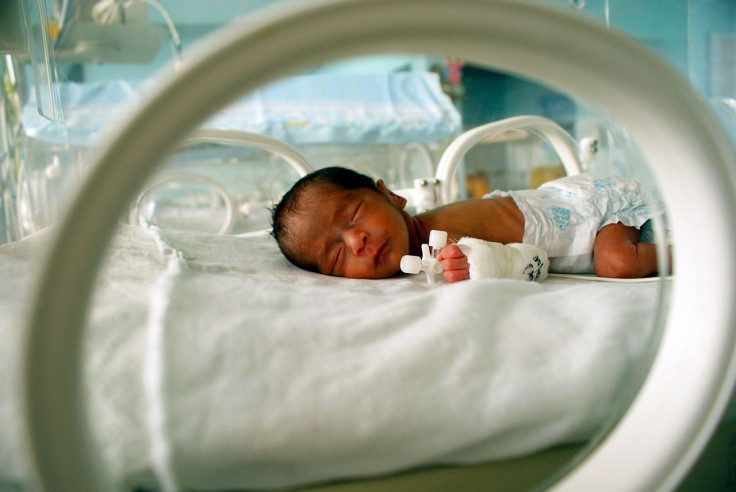Air Pollution Exposure In Late Pregnancy May Lead Newborn To NICU, Study Says

Exposure to air pollution during late pregnancy can increase the chances of newborns getting admitted to the Neonatal Intensive Care Unit (NICU), according to a study.
The study that was published in the medical journal Annals of Epidemiology last month stated that babies born to women who are exposed to pollutants on the day of delivery, a day before delivery or a week before delivery are at higher risk of getting admitted to the NICU.
The research that was done by a group of researchers from the Eunice Kennedy Shriver National Institute of Child Health and Human Development focused on the link between exposure to air pollution and NICU admissions.
The authors of the study found that newborns admission to NICU depends on the levels of exposure their mothers encounter during pregnancy. The researchers said an infant’s chances of getting admitted in the NICU can range from 4 to 147 percent depending on the levels of air pollution their mother’s encounter.
“Short-term exposure to most types of air pollutants may increase the risk for NICU admission. If our findings are confirmed, they suggest that pregnant women may want to consider limiting their time outdoors when air quality advisories indicate unhealthy conditions,” lead researcher Pauline Mendola said in a statement.
Previous studies have suggested a link between exposures to air pollutants in pregnancy and increased risk of preeclampsia, high blood pressure in pregnancy, and gestational diabetes. Earlier, researchers have also shown an association between exposure to certain types of air pollutants and the risk preterm birth and lower gestational age.
So, the research team suggested the above mentioned factors could be the cause for an increased number of NICU admissions for the babies born to mothers exposed to air pollutants. However, the researchers were unable to find the real cause for it.
The study’s authors said, “pollutants increase inflammation, leading to impaired blood vessel growth, particularly in the placenta, which supplies oxygen and nutrients to the developing fetus”.
For the study, the researchers analyzed data of over 223,000 births that took place at 12 clinical sites in the United States. The information was collected from the Consortium on Safe Labor. The team also looked into the data of more than 27,000 NICU admissions that they collected from the Community Multiscale Air Quality Modeling System.
The researchers then matched the air quality data of areas where each of the birth took place and the areas where the pregnant women spend a day and a week before delivery. At the end of the study, the researchers found that exposure to air pollutants from various sources, including power plants, gasoline and diesel engines, sewage facilities, landfills and industrial processed can increase the risk of NICU admissions.
While exposure to high concentrations of organic compounds in the air can increase the risk of NICU admission by 147 percent, ammonium ions and elemental carbon can increase the risk by 37 to 35 percent. Whereas, the exposure to nitrate compounds can increase the risk of NICU admission by 16 percent.
The researchers also noted that exposure to traffic-related air pollution can increase the risk of NICU admission by three to four percent depending on the duration of exposure.
© Copyright IBTimes 2024. All rights reserved.





















